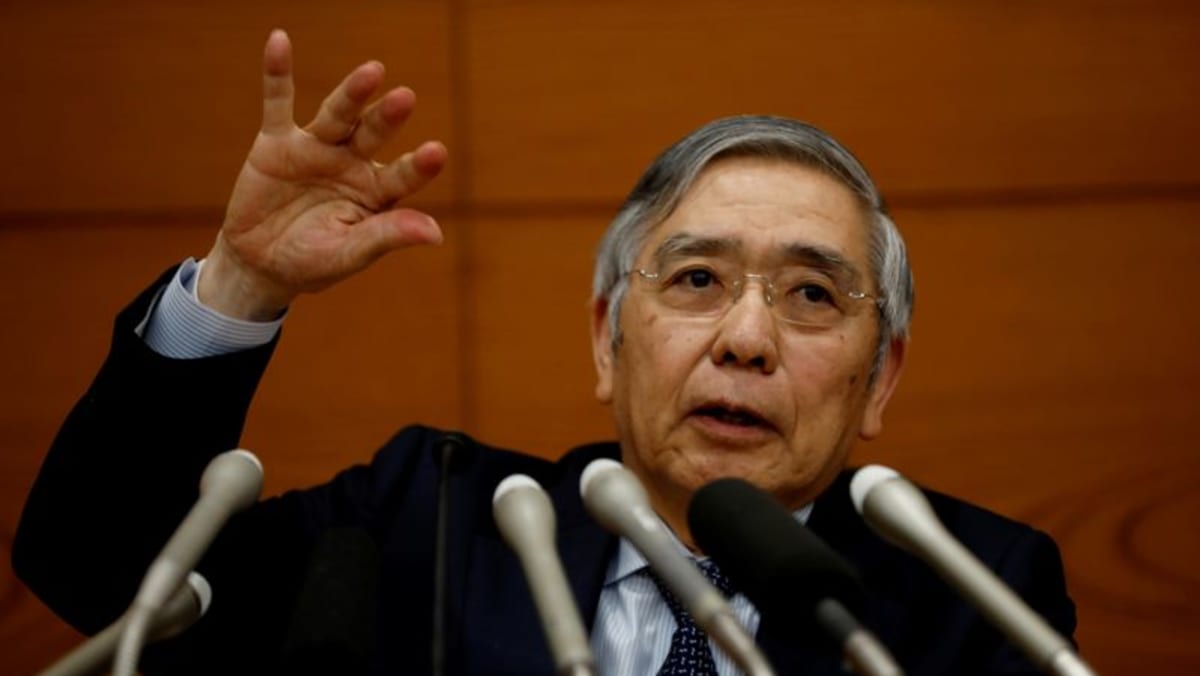TOKYO - Haruhiko Kuroda, the governor of the Bank of Japan (BOJ), dismissed the possibility of a near-term end to ultra-loose monetary policy on Monday, despite the fact that markets and policymakers are indicating an increased focus on what happens when Kuroda's term is up.
On the assumption that the BOJ will gradually remove its yield control under a new governor after Kuroda's second five-year tenure ends in April of next year, investors have continued to drive up the yields on Japanese government bonds (JGBs).
The Prime Minister Fumio Kishida's remarks on Monday that a decision on whether to change Japan's ten-year plan to fight deflation will be taken when a new BOJ governor is installed also reflect the shift in focus towards a post-Kuroda period.
In reference to any modifications the government might seek to its joint statement with the BOJ that commits the central bank to attaining a 2% inflation target at the earliest opportunity, Kishida said in a seminar, "It's something for when the new BOJ governor is decided."
Last week, the BOJ surprised the markets by enlarging the allowance band around its 10-year JGB goal in an effort to reduce some of the costs of sustained support.
On Monday, Kuroda stated that the decision made last week was not a precursor to the enormous stimulus program's withdrawal but rather a move to increase the impact of the ultra-easy policy.
"Definitely not a step in the direction of an exit. By maintaining monetary easing under yield curve management, the Bank would try to reach the price target in a sustainable and steady way, accompanied by wage rises "In a speech given to the business lobby Keidanren, Kuroda said.
However, according to Kuroda, wage growth will likely happen gradually because of the growing labour shortages in Japan and the structural changes in the country's labour market that are resulting in higher wages for temporary workers and an increase in the number of permanent employees.
According to Kuroda, "Japan's labour market circumstances are expected to tighten much more, and firms' pricing and wage-setting behaviour is also anticipated to shift."
In this regard, he said, Japan was "approaching a critical crossroads in its attempt to emerge from a protracted period of low inflation and low growth."
How quickly the BOJ could lift its yield curve control (YCC) targets, which are set at -0.1% for short-term interest rates and roughly 0% for the yield on 10-year bonds, is thought to depend on how strong wage growth is.
Continuous bond purchases by the BOJ to support the yield cap have come under increasing public fire for distorting market pricing and creating an unpleasant decline in the value of the yen, which increased the cost of importing already-expensive raw inputs.
According to sources cited by Reuters, Kishida's government will think about changing the joint statement for next year. This is because the goal of fighting deflation has fallen out of pace with recent increases in inflation and has stopped the BOJ from changing monetary policy more quickly.
According to analysts, any such change would increase the likelihood that the BOJ's record-low interest rates will be adjusted.
Due to predictions of a soon-to-come rate hike, the two-year JGB yield momentarily increased to 0.225% on Monday, the highest level since 2015. The 10-year JGB yield also increased slightly to 0.445%, which is close to the new band's upper limit of 0.5%.
The only information Kishida provided about the person he intended to designate as the new governor of the BOJ was that they would be "deemed most fit" at the time.


No comments:
Post a Comment